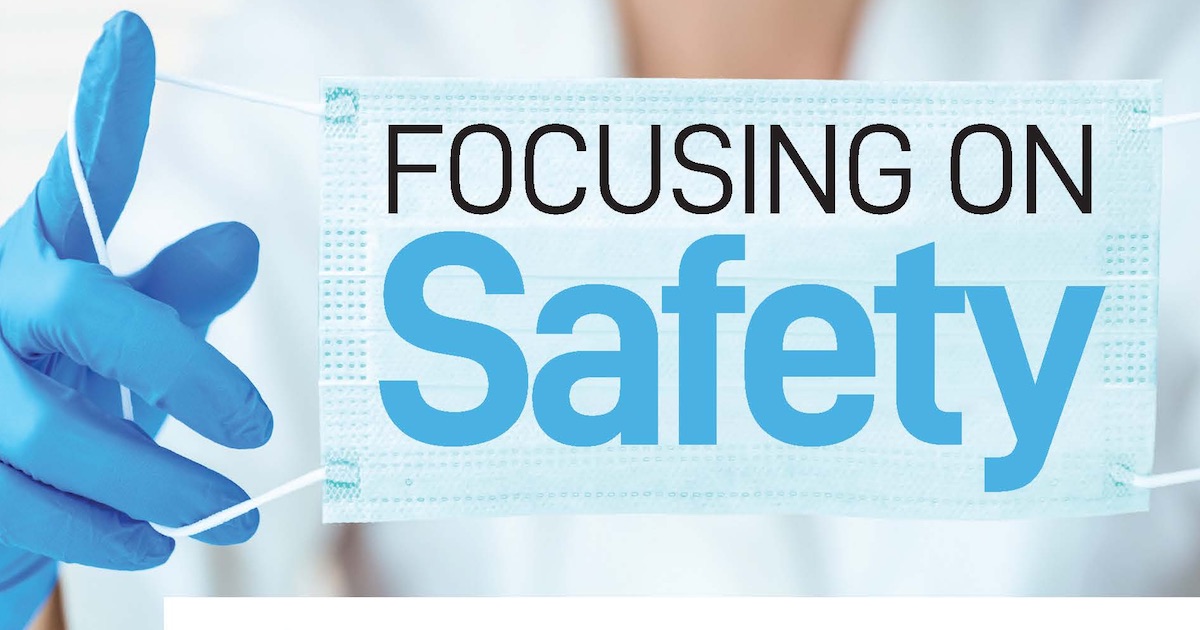“Feeling safe at an event is not a new concept and as planners we are accustomed to doing all that we can to ensure that our guests feel free from harm,” says Heidi Hughes, CMM (MPI British Columbia Chapter), director of sales and marketing of the Anvil Centre, New Westminster, British Columbia. “When it comes to duty of care, for the human- and experience-centric meeting and event industry, it’s all-hands-on-deck. The COVID-19 pandemic has heightened the need to have health and safety protocols visible and known to all guests, prior to their arrival, during their event and post-event.”
It’s the responsibility of everyone in the meeting industry to work together to ensure the safest environs, while executing within the framework of new norms.
“From health checks and contact tracing forms to signage regulating safe social spacing, the need to wear masks and continuous reminders to maintain a safe social distance is a joint effort and liability,” Hughes says. “Venues [that] once cleaned overnight or out of the sight of guests now have high-visibility cleaning occurring in public and event spaces, ensuring that high-touch surfaces are being sanitized frequently. All of these measures contribute to a guest’s peace of mind but also mitigate the risk of a potential transmission.
“Contact tracing can be vital to the limitation of liability, minimizing exposure, and opens up questions around where the ultimate responsibility lies—with the organizer, the venue or the service provider.”
Measures such as contract tracing, while effective at slowing/stopping the spread, may be viewed by some as an invasion of privacy. Accordingly, such efforts may be more difficult to implement in certain locations, depending on public awareness and health protocols.
“Unfortunately, there are still some clients and venues that feel the virus is a political ploy to take away their rights and they’re refusing to follow the mandates,” says Paige Mejia, FPO (MPI Dallas/Fort Worth Chapter), director of sales and marketing and co-owner of Pyrotex.
While onsite temperature checks have been generally accepted, Mejia is concerned that additional measures—such as onsite testing or proof of vaccination, if/when a vaccine is available—will be complicated by healthcare privacy laws, such as HIPPA in the U.S.
In the fireworks industry, Mejia has encountered competitors that don’t know or even seem to care about the fire code.
“There are rules you have to follow, or else people die,” she says. “I think COVID has changed things for people who didn’t previously really think about the laws and the rules that are put in place for their particular sector of the event industry.”
In recent discussions with colleagues, Mejia says people are asking many more questions than prior to the pandemic.
“One person said clients and vendors are asking more questions about previous events,” she says. “They’re more cognizant of what [event] came immediately before them: ‘How long ago was the venue used?’ ‘Who used the venue?’ ‘How many guests did they have?’ ‘Were they wearing masks?’ They’re trying to keep their people safe and making people more aware of their responsibility and liability.”
Heightened awareness of duty of care and the myriad safety issues brought to light by the pandemic can be viewed as an important gift, according to Michel Wohlmuth (MPI Mexico Chapter), CEO of Creatividad.
“I think that one of the few positive things that this situation has left us with is that it has made us more aware as individuals and, of course, as a society,” he says. “The challenge will be to keep it when we return to daily life.”
WEC Exemplifies Duty of Care Best Practices
Throughout the planning of the World Education Congress (WEC)—Nov. 3-6 in Grapevine, Texas—MPI has focused greatly not just on duty of care but also communicating to stakeholders about duty of care at the event through a robust web page and an informational video.



